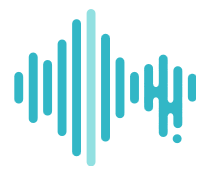news
Where Can I Obtain a US Doctor Database? AI’s Response
We have decided to ask ChatGPT this question. Not surprisingly the answer is quite good. Not only do we learn where the data can be found but what to watch out for in terms of regulations and privacy laws. Have a great read.
Obtaining a comprehensive database of US doctors can be challenging due to privacy regulations, such as HIPAA (Health Insurance Portability and Accountability Act), and ethical considerations regarding the use of personal information. However, there are legal and ethical ways to access certain types of data related to healthcare professionals for legitimate purposes. Here are some options:
- Medical Directories and Associations: Organizations like the American Medical Association (AMA) or state medical boards may provide directories or databases of licensed physicians. These databases often include basic information such as names, specialties, practice locations, and contact details. However, access to such databases may be restricted and subject to certain conditions.
- Healthcare Databases Providers: There are companies that compile and sell healthcare databases for various purposes, including marketing, research, and recruitment. These databases may include information about healthcare professionals, including doctors, nurses, and other practitioners. Examples of such companies include SK&A (now part of IQVIA), Definitive Healthcare, and Doximity.
- Publicly Available Datasets: Some government agencies or research organizations provide publicly available datasets related to healthcare professionals. These datasets may contain aggregated information for research or analytical purposes. Examples include datasets from the Centers for Medicare & Medicaid Services (CMS) or the National Provider Identifier (NPI) Registry.
- Professional Networking Platforms: Platforms like LinkedIn can be used to search for and connect with healthcare professionals, including doctors. While LinkedIn profiles typically provide professional information voluntarily shared by individuals, it may not be as comprehensive or up-to-date as official databases.
- Collaboration with Healthcare Institutions: Researchers, healthcare organizations, or companies may collaborate with healthcare institutions to access anonymized or aggregated data for specific research or business purposes. This often involves formal agreements and adherence to privacy regulations.
It’s important to note that any use of healthcare data, including data related to doctors, must comply with relevant regulations, including HIPAA and state privacy laws. Unauthorized access or misuse of healthcare data can have serious legal and ethical implications. Therefore, it’s advisable to ensure that data access and usage comply with applicable laws and ethical standards. Additionally, consider consulting legal or compliance professionals for guidance on data acquisition and usage.
